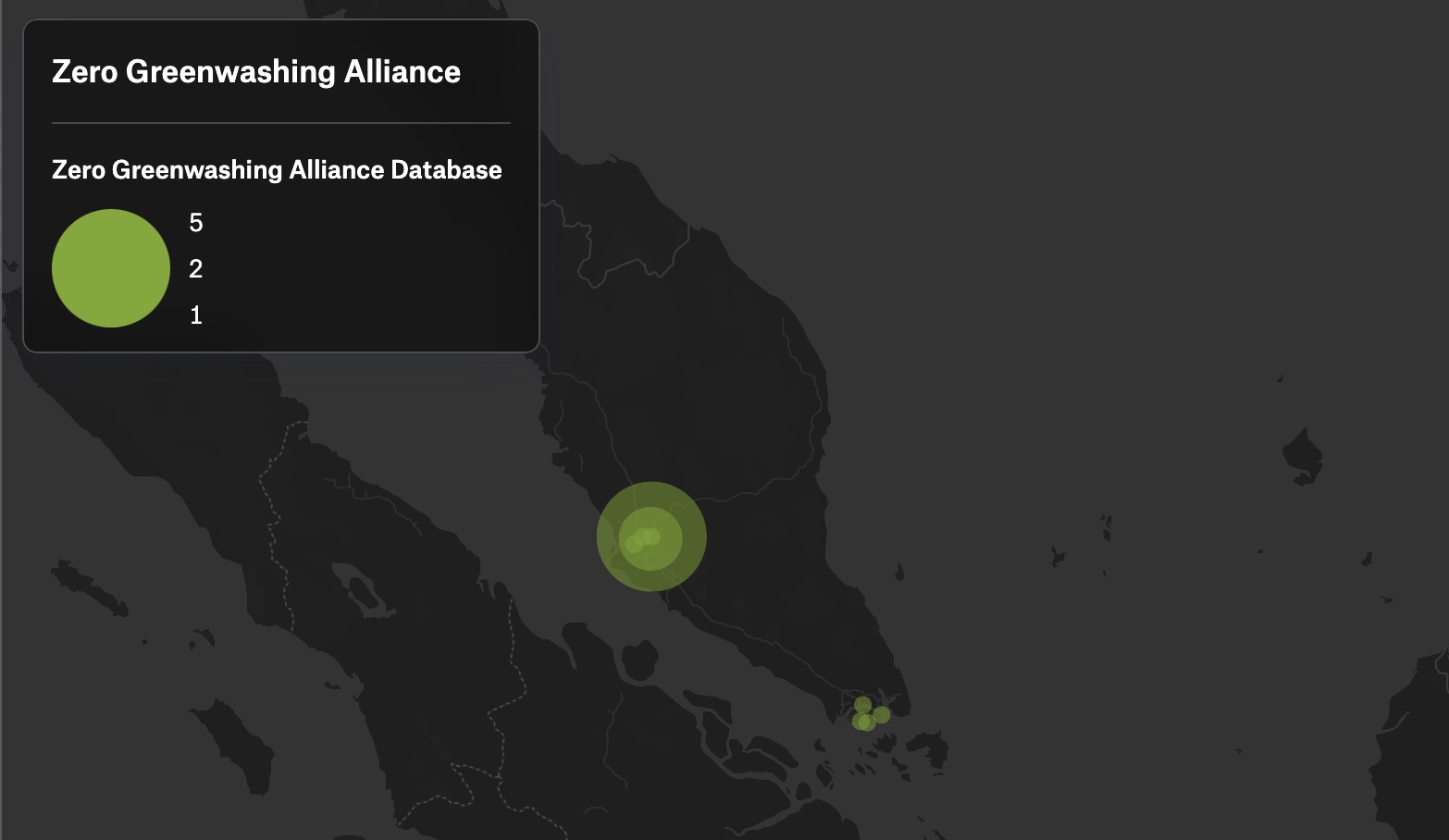SINGAPORE: On Jan 20 (Monday), the Zero Greenwashing Alliance Guidelines and Database was published, resulting from a collaboration founded late last year among Southeast Asian environmental NGOs, climate watchdogs, and campaign organisations. RimbaWatch, an independent regional environmental watchdog, is the alliance’s secretariat.
The Zero Greenwashing Alliance aims to track and respond to greenwashing cases in the region. Holding companies accountable for their claims of being environmentally friendly aims to discourage greenwashing and promote the adoption of credible climate and environmental targets and initiatives.
Free Malaysia Today reported that based on the alliance’s database, there are more greenwashing cases in Malaysia than in Singapore and Brunei.
Greenwashing refers to the practice of companies or other entities to mislead the public into believing it is doing more to protect the environment than what is actually true. The United Nations has said that this practice is a substantial obstacle to solving climate change and promotes false solutions to the climate crisis.
FMT reported that the new Rimbawatch database has been evaluated against global standards. This, as well as the group’s new guidelines, has shown that Malaysia “has more corporate and state greenwashing cases than neighbours Singapore and Brunei.”
Among the 17 instances of greenwashing noted in the three nations from Jan 1, 2020, to the present, 12 were found in Malaysia, three were in Singapore, and one was in Brunei. Of the remaining cases, three were detected in Singapore and one in Brunei.
One high-profile company headquartered in Singapore and featured in Zero Greenwashing Alliance’s database is Grab, over claims related to the promotion of Grab’s “Carbon Neutral Fee,” published on the company’s website in 2022 and is still in effect. Grab’s case file, which includes the company’s response, may be found here.
FMT quoted Adam Farhan, the co-founder and director of RimbaWatch, as saying that out of the 17 cases across Southeast Asia, 11 had to do with fossil fuel-related claims. Two cases were related to banks, three involved transportation companies, including airlines, and one was connected to a state agency
“Examples of case files include organizations that have published communications regarding non-credible carbon neutrality claims or inadequate net-zero targets, or claiming products have zero environmental impact,” Mr Farhan said.
He added, however, that as the database is added to, its numbers and rankings among Southeast Asian nations will change. /TISG
Read also: Aircon ad featuring Xiaxue to ‘save Earth’ banned due to misleading claims

